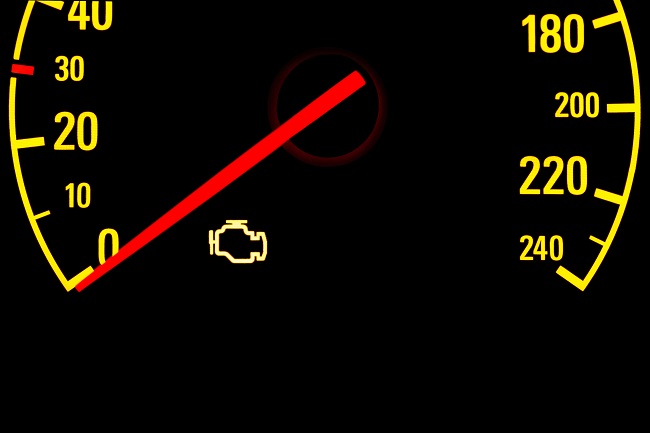For many car owners, the appearance of the “check engine light” on their dashboard is a cause of great frustration and worry. Unfortunately, part of this frustration stems from the lack of specifics given with this warning, as it can be the result of a plethora of possible vehicle issues. Generally, unless your car has a visible and noticeable problem, there is no need to pull over and panic. Instead, you can begin an evaluation process of what may be causing the light to come on, and if you aren’t able to determine its cause, you can take it to an auto shop or parts shop where a computer plugged under the dashboard can generally indicate the underlying issue.

According to a study done by CarMD in 2010, here are the five most common causes of the check engine light:
- Oxygen Sensor – The oxygen sensor helps monitor how much fuel your vehicle has used. When it begins malfunctioning, it sends faulty data to the computer, resulting in reduced gas mileage. If left unaddressed, it can also lead to eventual damage to the catalytic converter.
- Gas Cap – Believe it or not, the check engine light could simply be indicating that your gas cap wasn’t tightened enough or that it is faulty. If you notice a crack in it, or something causing it to be loose, a simple inexpensive purchase of a new gas cap should solve the problem.
- Catalytic Converter – Due to the expensive cost of replacing a catalytic converter, no car owner wants to receive news that the check engine light is the result of a failing one. However, it is an important repair to make as a malfunctioning converter can negatively affect vehicle performance and fuel economy, as well as potentially harm the engine and fuel system in the long run.
- Mass Air Flow Sensor – As this sensor is vulnerable to road and weather elements (such as dry or dusty conditions), routine replacement of the air filter can keep it from failing prematurely. However, once it has failed, the air flow sensor needs to be replaced or it has the potential to cause problems to a vehicle’s performance and catalytic converter.
- Spark Plugs – If a vehicle’s spark plugs are malfunctioning, it results in a problem with the air/fuel mix, leading to less miles per gallon and poor performance. If left unreplaced, these can eventually lead to more expensive problems such as a failure of the oxygen sensor and catalytic converter.
While the check engine light should always be taken seriously as a potential indicator of an important mechanical issue with your vehicle, there is always the possibility that it could be on due to temporary influences, such as humidity. In those situations, it should go back off on its own within a short time.
Serving the Dallas/Fort Worth area, Anything Automotive is here to provide exceptional service for any of your auto repair needs. If you have questions about your check engine light or would like to schedule an appointment for auto services, contact us today!
